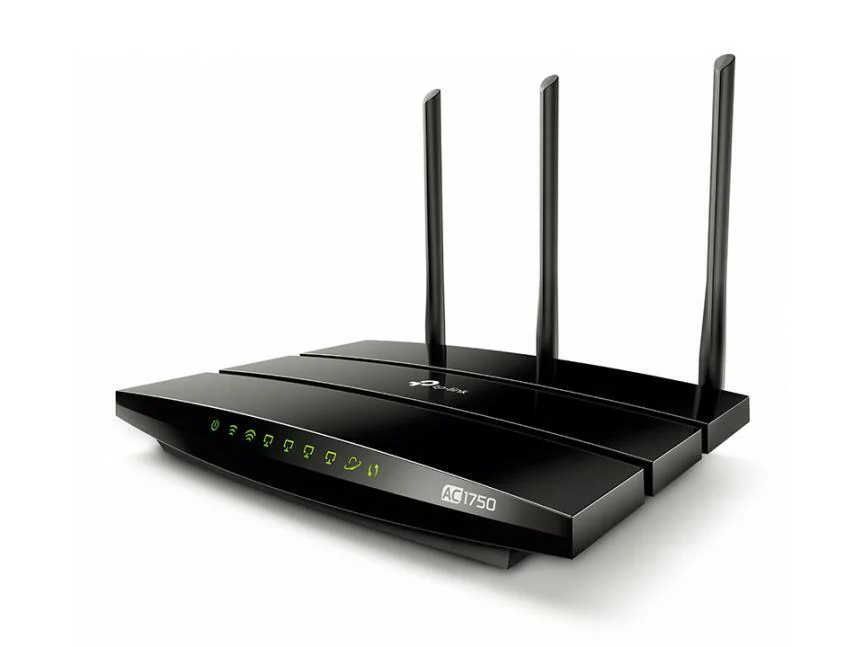Are you tired of waiting for web pages to load, buffering videos, and slow downloads? Slow Wi-Fi can be a frustrating problem, but there are ways to speed up your internet connection without breaking the bank. In this article, we’ll share some tips and tricks to help you optimize your Wi-Fi and get the most out of your internet connection.
Table of Contents
- Introduction
- Check Your Wi-Fi Speed
- Reset Your Router
- Change the Channel on Your Router
- Move Your Router to a Better Location
- Get a Wi-Fi Range Extender
- Update Your Router’s Firmware
- Use Quality of Service (QoS) Settings
- Limit the Number of Devices Connected to Your Wi-Fi
- Disable Unused Devices or Services
- Use Ethernet Cable Instead of Wi-Fi
- Use a Wi-Fi Analyzer
- Consider Upgrading Your Router
- Use a Mesh Network System
- Conclusion
- FAQs
Check Your Wi-Fi Speed
Before trying to speed up your Wi-Fi, you need to know how fast your internet connection is. You can use an online speed test tool like Ookla or Google’s speed test to check your internet speed. If you’re not getting the speed you’re paying for, contact your internet service provider (ISP) to see if there’s an issue with your connection.
Reset Your Router
Sometimes, simply resetting your router can help improve, wait for about 30 seconds, and then plug it back in. This can help clear any issues or errors that may be slowing down your internet connection.
Change the Channel on Your Router
If your Wi-Fi is slow, it could be because there are too many devices using the same channel. Most routers have the option to change channels. You can use a Wi-Fi analyzer app to check which channel is less congested and switch to that channel. This can help improve the speed and reliability of your Wi-Fi.
Move Your Router to a Better Location
The location of your router can also affect the speed and quality of your Wi-Fi. Ideally, you should place your router in a central location, away from walls and obstructions. The closer your device is to the router, the stronger the Wi-Fi signal will be. You may also want to consider elevating your router to a higher position, such as on a shelf or wall mount.
Get a Wi-Fi Range Extender
If your Wi-Fi signal is weak in certain areas of your home, a Wi-Fi range extender can help. This device works by amplifying the existing Wi-Fi signal, so you can get a stronger connection in areas where the signal is weak. This can help eliminate dead zones and improve the speed and reliability of your Wi-Fi.
Update Your Router’s Firmware
Just like any other electronic device, routers need to be updated to improve performance and fix bugs. Check your router’s user manual or the manufacturer’s website for instructions on how to update the firmware. This can help ensure that your router is running smoothly and can improve the speed and stability of your Wi-Fi.
Use Quality of Service (QoS) Settings
QoS settings allow you to prioritize certain types of internet traffic over others. For example, you can prioritize video streaming over file downloads to ensure that your videos load faster. This can help improve the speed and performance of your Wi-Fi, especially if you have multiple devices connected to your network.
Limit the Number of Devices Connected to Your Wi-Fi
The more devices connected to your Wi-Fi network, the slower your internet connection will be. Limit the number of devices connected to your Wi-Fi, especially if they are not being used. You may also want to consider setting up a guest network for visitors to prevent them from using up your bandwidth.
Disable Unused Devices or Services
Some devices or services may be using your Wi-Fi bandwidth without your knowledge. For example, automatic updates, cloud backups, and other background processes can slow down your internet connection. Disable any unused devices or services to free up bandwidth and improve the speed of your Wi-Fi.
Use Ethernet Cable Instead of Wi-Fi
If you need a fast and stable internet connection, consider using an Ethernet cable instead of Wi-Fi. Ethernet cables provide a direct connection to your router, which can help eliminate lag and buffering. This is especially useful for gaming, video conferencing, and other activities that require a reliable internet connection.
Use a Wi-Fi Analyzer
A Wi-Fi analyzer app can help you identify Wi-Fi problems and optimize your network for better performance. These apps analyze your Wi-Fi signal strength, channel usage, and other factors that can affect your internet speed. You can use this information to make adjustments to your router’s settings and improve the speed and reliability of your Wi-Fi.
Consider Upgrading Your Router
If all else fails, you may need to consider upgrading your router. Older routers may not be able to keep up with modern internet speeds and may be limiting your Wi-Fi performance. Look for a router that supports the latest Wi-Fi standards, such as 802.11ac or 802.11ax, and has advanced features like beamforming and MU-MIMO.
Use a Mesh Network System
If you have a large home or multiple floors, a mesh network system can help ensure that you have a strong Wi-Fi signal everywhere. Mesh networks use multiple access points that work together to provide seamless Wi-Fi coverage. This can help eliminate dead zones and improve the speed and reliability of your Wi-Fi.
Conclusion
Slow Wi-Fi can be frustrating, but there are many things you can do to improve the speed and reliability of your internet connection. Try some of the tips mentioned in this article, such as resetting your router, changing the channel, and updating your firmware. You may also want to consider getting a Wi-Fi range extender, using QoS settings, or limiting the number of devices connected to your network. With a little effort, you can enjoy faster and more reliable Wi-Fi in your home.
FAQs
There are many reasons why your Wi-Fi may be slow, including too many devices connected to your network, outdated router firmware, and interference from other electronic devices.
You can try resetting your router, changing the channel, updating your firmware, and optimizing your QoS settings to improve the speed and reliability of your Wi-Fi.
Ethernet is generally better for gaming, as it provides a more stable and reliable internet connection than Wi-Fi.
You can use a Wi-Fi analyzer app to check your Wi-Fi signal strength and identify any issues that may be affecting your internet speed.
When buying a new router, you should look for one that supports the latest Wi-Fi standards, has advanced features like beamforming and MU-MIMO, and has a strong signal range to ensure optimal performance.



